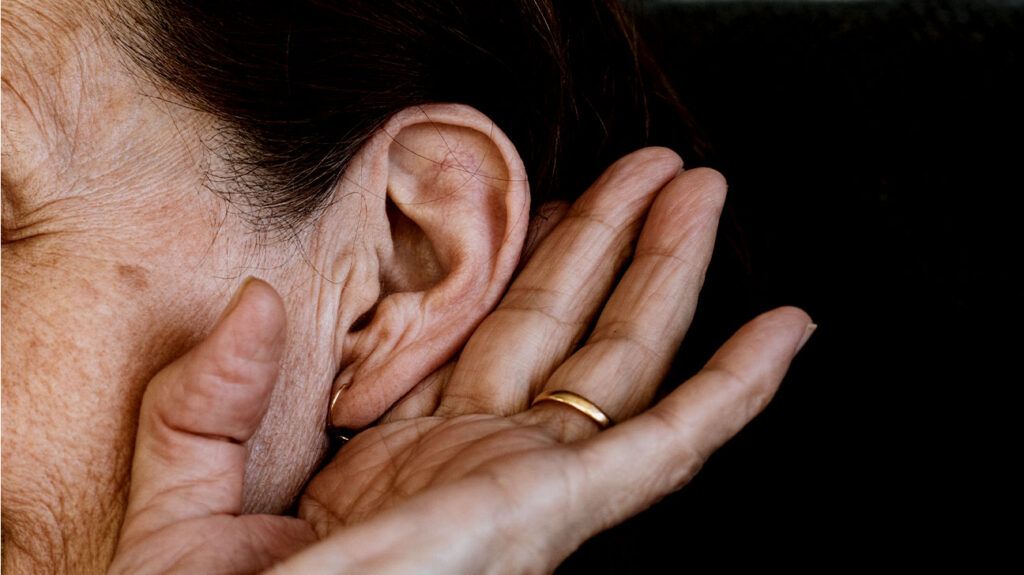Factors, such as stress, noise exposure, and lack of sleep, can contribute to tinnitus flares. At other times, tinnitus may be less noticeable, giving the impression that tinnitus comes and goes.
Tinnitus involves a sound in the ears or head, usually without an external source. It often manifests as ringing, humming, hissing, whistling, or roaring noises. However, the specific sound and intensity can vary from person to person.
Tinnitus can affect one or both ears and may be intermittent or continuous. People may experience flares, which are times when the noise becomes more pronounced or bothersome.
This article explains why tinnitus may appear to come and go, including whether the condition will stop on its own and other tips to manage it.

According to the
The intensity, frequency, and duration of tinnitus episodes vary from person to person.
Pulsatile tinnitus
Pulsatile tinnitus involves a rhythmic, pulsing, or whooshing sound in the ears that may
Vascular or blood flow-related issues, such as abnormalities in the blood vessels near the ear or changes in blood flow dynamics, can cause pulsatile tinnitus.
These underlying vascular conditions can lead to fluctuations in the perception of pulsatile tinnitus.
Environment
Tinnitus can seem more pronounced and bothersome in quiet settings. This is because there are fewer external sounds to mask or distract from the internal tinnitus noise.
The contrast between the absence of external sound and the perception of tinnitus can make it more noticeable.
Conversely, being in a noisy or distracting environment can help reduce the perceived loudness or annoyance of tinnitus.
Background noise, such as the hum of a fan, a white noise machine, or ambient sounds in a bustling cafe, can provide some relief by masking the tinnitus noise.
Tinnitus may appear to come and go as a person moves through different environments that mask or exacerbate the noise.
Other factors
Some people
Some tinnitus causes and triggers may make symptoms temporarily worse, including:
- noise exposure
- stress
- lack of sleep
- earwax buildup
- certain medications
- migraine headaches
- head or neck injuries
Meniere disease is an inner ear disorder that
Tinnitus that occurs in response to a specific event, such as attending a loud concert or exposure to loud noises at work,
A
If doctors cannot associate tinnitus with underlying health conditions, such as hearing loss, ear infections, or neurological disorders, it may have a better chance of resolving spontaneously.
Some people may notice their tinnitus gradually diminishes or becomes less bothersome over time, even without specific treatment. This gradual improvement may indicate the body’s natural ability to habituate to the tinnitus sounds.
Managing tinnitus can be challenging. However, the following strategies and techniques may alleviate a person’s symptoms and improve their quality of life:
- limiting exposure to loud noises, which can worsen tinnitus and cause hearing damage
- using ear protection, such as earplugs or earmuffs, in noisy environments to prevent further hearing loss
- using background noise or white noise machines to mask the tinnitus sounds, especially when trying to sleep or concentrate
- playing soothing music or nature sounds to provide distraction and relaxation
- exploring sound therapy options, such as using wearable devices that produce low level white noise or customized sound frequencies to help mask or distract from tinnitus sounds
- avoiding using headphones or earbuds at high volumes
- taking regular breaks when listening to music or watching television
While tinnitus may resolve independently for some people, it can persist chronically or worsen over time, especially if it is due to underlying medical conditions or ongoing exposure to risk factors, such as loud noises.
People with tinnitus should consult a healthcare professional, such as an audiologist, for a comprehensive evaluation and appropriate management.
They can help determine the underlying cause of tinnitus and recommend suitable treatment options to alleviate the symptoms and improve the person’s quality of life.
Some people may experience tinnitus symptoms that come and go instead of a constant noise. Certain factors, such as moving from quiet to noisy environments, can give the perception that tinnitus comes and goes.
Strategies, such as protecting the ears from loud noises and exploring sound therapy options, may help improve an affected person’s quality of life and prevent worsening symptoms.
People with ongoing tinnitus symptoms may also choose to speak with a healthcare professional who can diagnose any underlying causes and suggest appropriate treatment.
